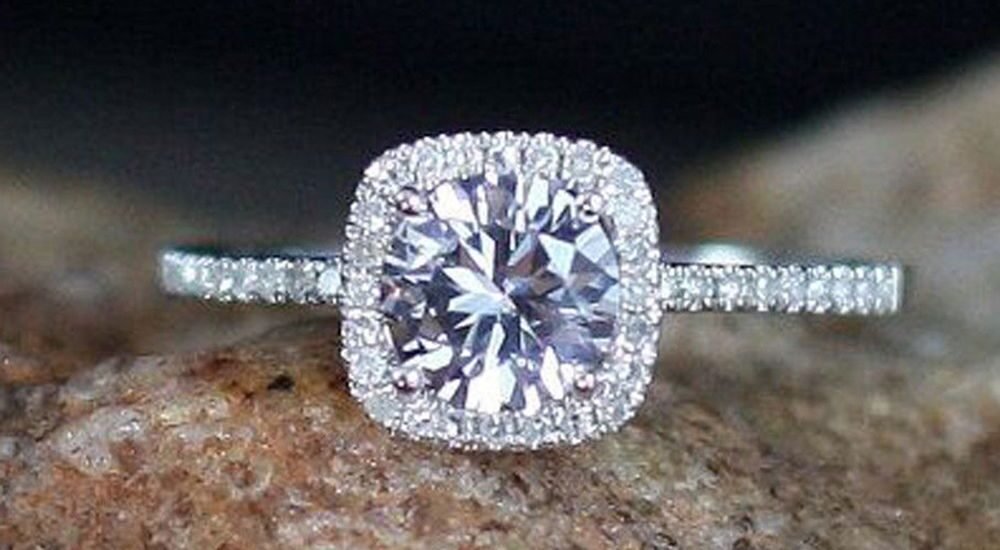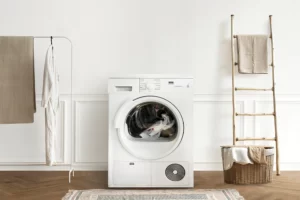What Are Moissanite Wedding Bands?
Detailed Guide On Moissanite Wedding Bands
Why is moissanite best?
Moissanite has been used in jewelry and engagement rings before, but it has gained popularity with the use of moissanite wedding bands. But what are moissanite wedding bands, and how do you know if they’re right for you? Here’s everything you need to know about this material so that you can be confident that it’s the best option for your future as newlyweds.
History of Moissanite
In 1893, a French scientist named Henri Becquerel discovered a new mineral while experimenting. After spending a few months studying it, he determined that it was not previously known to science. He subsequently named it moissanite after his name and that of Pierre and Marie Curie, two other researchers who discovered several radioactive elements. The stone’s chemical composition is silicon carbide (SiC), which is similar to quartz in appearance but with harder material properties. It was not commercially produced until over 50 years later when General Electric started developing methods for synthesizing it from silicon carbide powder in 1993. Its first use was as a synthetic gemstone for industrial applications such as watch faces or computer crystals.
Why Choose Moissanite over Diamonds?
Diamonds are a girl’s best friend, but for those looking to save money and still look like royalty on their wedding day, moissanite might be an excellent alternative. These gemstones, which can often be mistaken for diamonds because of their high luster and hardiness, are a great way to provide your fiance with a sparkly ring that still fits into your budget. Here’s how moissanite differs from a diamond so you can make an informed decision: Quality: Diamonds have traditionally been considered one of life’s most valuable possessions. But though they may be beautiful as pieces of jewelry, they also cost significantly more than gems like moissanite.
Where to Buy Moissanite?
Several reputable online jewelers carry moissanite; some of these companies include Costco, Sam’s Club, and Zales. Additionally, many local jewellery stores now carry moissanite as well. There are also plenty of independent jewelry retailers who will have no problem special ordering moissanite for you if it isn’t in stock. To find a retailer near you or to purchase online, use a site like Brilliant Earth or James Allen. As we mentioned above, Fonder Diamond is another awesome option! They’re an authorized dealer for Charles & Colvard (the maker of moissanite) and they frequently feature special sales on their site. Be sure to check back often to see what deals they have going on.
Top Tips When Buying a Ring
For example, moissanite is more difficult to spot than a diamond. Because of its toughness, it can also be more difficult to care for. It’s not necessarily harder or softer than a diamond—just different, and that difference should be taken into account when choosing a ring. Your jeweler can help you figure out which stone is best suited for your taste and needs. And as with anything wedding-related, it’s worth doing your research to find an expert jeweler whose opinion you trust and whose products you love.
Types of Metal Used in Rings
Usually, gold or platinum are used for wedding bands, but you can find rings in any type of metal. The most common are yellow gold, white gold, and platinum. Gold bands have been around forever and will likely never go out of style. White gold is lighter in color than yellow gold because it contains nickel to make it whiter. Platinum is very strong and durable, which makes it perfect for those who do a lot of work with their hands (farming, etc.) It’s also hypoallergenic because it doesn’t contain nickel like white or yellow gold does. While some people prefer one over another, there isn’t a significant difference in cost between them as they all carry a similar price tag per gram.
Durability Considerations
Moissanite’s durability is quite high, especially when compared to other gemstones. The Mohs scale of mineral hardness goes from 1 (softest) to 10 (hardest). The diamond rate on that scale is a 10—it’s one of the hardest substances in existence. By comparison, moissanite sits at an 8—durability similar to ruby and sapphire. Not bad for a hard-to-pronounce semi-precious stone! One drawback with moissanite, however, is its relatively low refractive index.

















